“If _____[I do this] _____, then _____[this]_____ will happen.”
Sound familiar? It should. This formulaic approach to making a statement about what you “think” will happen is the basis of most science fair projects and much scientific exploration.
Step by Step
You can see from the basic outline of the Scientific Method below that writing your hypothesis comes early in the process:
- Ask a Question
- Do Background Research
- Construct a Hypothesis
- Test Your Hypothesis by Doing an Experiment
- Analyze Your Data and Draw a Conclusion
- Communicate Your Results
Following the scientific method. we come up with a question that we want to answer, we do some initial research, and then before we set out to answer the question by performing an experiment and observing what happens, we first clearly identify what we “think” will happen.
We make an “educated guess.”
We write a hypothesis.
We set out to prove or disprove the hypothesis.
What you “think” will happen, of course, should be based on your preliminary research and your understanding of the science and scientific principles involved in your proposed experiment or study. In other words, you don’t simply “guess.” You’re not taking a shot in the dark. You’re not pulling your statement out of thin air. Instead, you make an “educated guess” based on what you already know and what you have already learned from your research.
If you keep in mind the format of a well-constructed hypothesis, you should find that writing your hypothesis is not difficult to do. You’ll also find that in order to write a solid hypothesis, you need to understand what your variables are for your project. It’s all connected!
If I never water my plant, it will dry out and die.
That seems like an obvious statement, right? The above hypothesis is too simplistic for most middle- to upper-grade science projects, however. As you work on deciding what question you will explore, you should be looking for something for which the answer is not already obvious or already known (to you). When you write your hypothesis, it should be based on your “educated guess” not on known data. Similarly, the hypothesis should be written before you begin your experimental proceduresnot after the fact.
Our staff scientists offer the following tips for thinking about and writing good hypotheses.
- The question comes first. Before you make a hypothesis, you have to clearly identify the question you are interested in studying.
- A hypothesis is a statement, not a question. Your hypothesis is not the scientific question in your project. The hypothesis is an educated, testable prediction about what will happen.
- Make it clear. A good hypothesis is written in clear and simple language. Reading your hypothesis should tell a teacher or judge exactly what you thought was going to happen when you started your project.
- Keep the variables in mind. A good hypothesis defines the variables in easy-to-measure terms, like who the participants are, what changes during the testing, and what the effect of the changes will be. (For more information about identifying variables, see: Variables in Your Science Fair Project .)
- Make sure your hypothesis is “testable.” To prove or disprove your hypothesis, you need to be able to do an experiment and take measurements or make observations to see how two things (your variables) are related. You should also be able to repeat your experiment over and over again, if necessary.
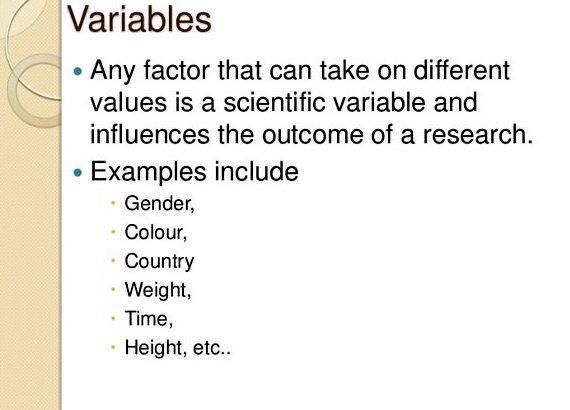
To create a “testable” hypothesis make sure you have done all of these things:
- Thought about what experiments you will need to carry out to do the test.
- Identified the variables in the project.
- Included the independent and dependent variables in the hypothesis statement. (This helps ensure that your statement is specific enough.
Putting it in Action
To help demonstrate the above principles and techniques for developing and writing solid, specific, and testable hypotheses, Sandra and Kristin, two of our staff scientists, offer the following good and bad examples.
When there is less oxygen in the water, rainbow trout suffer more lice.
Kristin says: “This hypothesis is good because it is testable, simple, written as a statement, and establishes the participants (trout ), variables (oxygen in water, and numbers of lice ), and predicts effect (as oxygen levels go down, the numbers of lice go up ).”
Our universe is surrounded by another, larger universe, with which we can have absolutely no contact.
Kristin says: “This statement may or may not be true, but it is not a scientific hypothesis. By its very nature, it is not testable. There are no observations that a scientist can make to tell whether or not the hypothesis is correct. This statement is speculation, not a hypothesis.”
Aphid-infected plants that are exposed to ladybugs will have fewer aphids after a week than aphid-infected plants which are left untreated.
Sandra says: “This hypothesis gives a clear indication of what is to be tested (the ability of ladybugs to curb an aphid infestation ), is a manageable size for a single experiment, mentions the independent variable (ladybugs ) and the dependent variable (number of aphids ), and predicts the effect (exposure to ladybugs reduces the number of aphids ).”
Ladybugs are a good natural pesticide for treating aphid infected plants.
Sandra says: “This statement is not ‘bite size.’ Whether or not something is a ‘good natural pesticide’ is too vague for a science fair project. There is no clear indication of what will be measured to evaluate the prediction.”
Hypotheses in History
Throughout history, scientists have posed hypotheses and then set out to prove or disprove them. Staff Scientist Dave reminds that scientific experiments become a dialogue between and among scientists and that hypotheses are rarely (if ever) “eternal.” In other words, even a hypothesis that is proven true may be displaced by the next set of research on a similar topic, whether that research appears a month or a hundred years later.
A look at the work of Sir Isaac Newton and Albert Einstein, more than 100 years apart, shows good hypothesis-writing in action.
As Dave explains, “A hypothesis is a possible explanation for something that is observed in nature. For example, it is a common observation that objects that are thrown into the air fall toward the earth. Sir Isaac Newton (1643-1727) put forth a hypothesis to explain this observation, which might be stated as ‘objects with mass attract each other through a gravitational field.'”
Newton’s hypothesis demonstrates the techniques for writing a good hypothesis: It is testable. It is simple. It is universal. It allows for predictions that will occur in new circumstances. It builds upon previously accumulated knowledge (e.g. Newton’s work explained the observed orbits of the planets).
“As it turns out, despite its incredible explanatory power, Newton’s hypothesis was wrong,” says Dave. “Albert Einstein (1879-1955) provided a hypothesis that is closer to the truth, which can be stated as ‘objects with mass cause space to bend.’ This hypothesis discards the idea of a gravitational field and introduces the concept of space as bendable. Like Newton’s hypothesis, the one offered by Einstein has all of the characteristics of a good hypothesis.”
“Like all scientific ideas and explanations,” says Dave, “hypotheses are all partial and temporary, lasting just until a better one comes along.”
That’s good news for scientists of all ages. There are always questions to answer and educated guesses to make!
If your science fair is over, leave a comment here to let us know what your hypothesis was for your project.
Writing your hypothesis is an important step of your science project. After reading the background material and carefully reviewing the procedure you will be using, what do you think will happen? The hypothesis will take the form of a statement that predicts what will happen to the dependent variable when the independent variable changes. If you click the “Project Guide” tab and select “Hypothesis” from the list, you will find resources and examples that may help you.
Something is wrong with this website everytime I search Steps of the Scientific Questions it allways says Scientific method and im only ten and need examples of questions of scienfific help me. >.
Hi. You can view our resource on “Science Questions” by clicking the “Project Guide” tab on the Science Buddies site (above) and then clicking the “Your Question” link in the list. (It’s near the top.)
Hi,Im doing my science project on “What is the point of boiling?” and I was wondering if this sounds like a good hypothesis? “If I put the water in/on an increasingly hot surface boiling will begin to happen.”
Please log in to add your comment.
HYPOTHESIS Scientific Method 1. IDENTIFY a problem
2. WRITE a hypothesis for expectations based on facts
3. TEST the hypothesis with repeatable observations/ experiments
4. ACCEPT or REJECT the hypothesis
5. REPEAT experiments Resources:
[1] Russel, Bertrand. 1931. Characterisitics of the Scientific Method. justonly.com/chemistry/pdfs/characteristics_sci_method.pdf[2]Writing Hypotheses
accessexcellence.org/LC/TL/filson/writhypo.php It does not matter that your experiment has been done a thousand times before or that your teacher already knows the results. What matters is that you don’;t know the results and that you can INDEPENDENTLY FIND A VERIFYABLE ANSWER. In real experiments, real hypotheses should be written BEFORE the actual experiment.[2] A Hypothesis is a
TESTABLE STATEMENT
(that makes a prediction) A Hypothesis is NOT a Theory A THEORY is a general explanation supported by a large amount of data. How are hypotheses written? 1. I think chocolate causes pimples.
2. Salt in soil might affect plant growth.
3. Plant growth may be affected by the color of the light.
4. Bacterial growth may be affected by temperature.
5. Ultra-violet light can cause skin cancer.
6. Temperature may make leaves change color. NOT good hypotheses unclear connections
tentative guesses
difficult to accept/reject A Good Hypothesis is. TESTABLE
attempts to explain what will occur
supported by logical reasoning
detailed, yet concise
Can be verified, rejected, or revised Steps to writing a good hypothesis: 1. Identify the problem
(What are you trying to find out?)
2. Make an educated guess about what you expect to happen
3. Write a sentence that clearly states your prediction in a way that can be verified/rejected It’;s okay to be wrong! Discuss reasons why your results differed from your hypothesis This way, you can revise your hypothesis for future experiments How do I do that. Example: During a lab experiment, only half the class washed their hands and used sterilized equipment when growing bacteria cultures. Step 1: What is the problem? How will sterilization affect bacteria growth? Step 2: Educated guess Unsterilized conditions lead to greater (uncontrolled) exposure to different bacteria Step 3: Write a hypothesis The bacteria cultures handled in unsterilized conditions will have a greater variety of bacteria types. The bacteria cultures handled in sterilized conditions will have larger bacteria colonies. There will be no difference in bacterial growth between sterilized and unsterilized treatments. So, what have we learned? Write your hypothesis BEFORE you do your experiment!
Make sure your hypothesis addresses your problem
Be clear about the situation and the expected results
Your hypothesis should be a STRONG STATEMENT about your predictions
DON’;T use I think. or I predict. or . may. REMEMBER:
If you’;re having trouble or are completely lost, don’;t hesitate to ask!
If you think you’;re on the right track but want to be sure, feel free to run it by me 🙂
2016 Prezi Inc. Terms


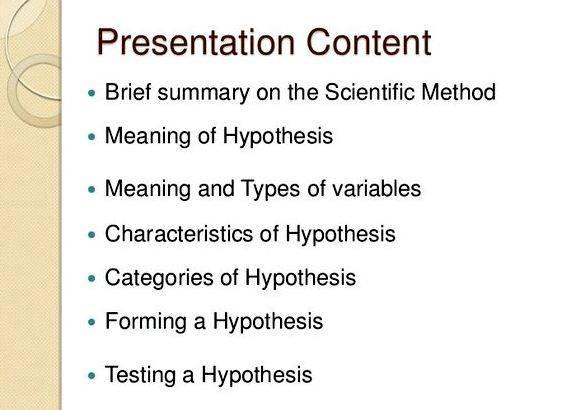


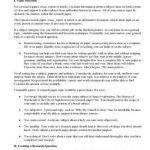 My daily writing routine letters
My daily writing routine letters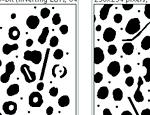 Imagej analyze particles summary writing
Imagej analyze particles summary writing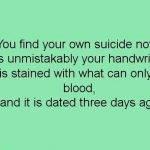 Writing your life story prompts for writing
Writing your life story prompts for writing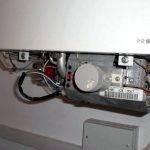 Potterton netaheat 10-16 not igniting your writing
Potterton netaheat 10-16 not igniting your writing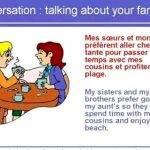 Writing about your family in french
Writing about your family in french






